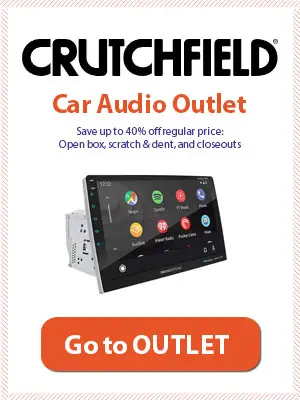Why do my speakers keep cutting out in my car at high volume?
When you turn up the volume on your car speakers, there could be a number of reasons why they stop working. These range from fault wire connections and speaker impedance issues to blown speakers and more.
Table of Contents
Speakers cut out at elevated volumes for most drivers using vintage or poorly-made vehicle stereo models. Your speakers may go out when you turn up the volume for a number of reasons. Thankfully, there are a number of solutions available for this issue with your car speakers.
What Are The Causes For Car Speakers Cutting Out At High Volume?
This problem can be caused by a number of factors. The majority of these issues are caused by poor wiring connections between the head unit and the power supply, amp, or ground.
A speaker problem in a used or modified car could suggest a shoddy wiring installation. The stereo wiring, on the other hand, can come loose with time. Speaker impedance, or the ohm compatibility between the speakers and amp, may potentially be a concern. Ridiculously powerful speakers can cause shorts, therefore it’s preferable to use audio equipment that’s wattage suitable.
A blown speaker, which produces static tones or resistance more visibly when the music is louder, could also be the source of the speaker problem. If your speaker has blown out, you may need to replace it entirely.
How to Fix Car Speakers Cutting Out At High Volume?
To begin, turn off your vehicle. Pull the head wiring unit with care. Ensure that all of the cables are connected. Check that each wire is securely secured, isn’t damaged, and isn’t intersecting or interfering with other wires.
Voltage concerns can cause the majority of speaker shorts. Make sure the yellow, red, and black wires are all in good shape. These cables link the receiver to the automobile battery and ground.
Restart your automobile to see if the problem has been resolved. If changing the head unit cables does not alleviate the problem, the amp or the speaker itself may be to blame. To figure out what’s wrong, you’ll have to run some tests.
Start by testing the amplifier channels. Access the amp and note down two values: the impedance in ohms and the RMS wattage. Ensure that the cables are not overlapping or damaged.
Use the right and left amp channels to run another test. Disconnect all speaker wires before testing the right and left speakers utilizing only the left amp channel, followed by the right amp channel. If you hear discrepancies between the two amps, then the amp is most likely the root of the issue and should be changed.
If the amp channel test does not resolve the speaker issue, the speaker may be defective.
Disconnect the speakers, making that the wires are securely secured and undamaged. Inspect the speaker’s wattage RMS rating and make sure it matches the amplifier’s value. If the RMS watts aren’t compatible, the speakers may be overpowered, resulting in shorts.
A speaker impedance value is also recommended for each radio or amp. An amplifier’s specifications, for instance, may recommend using it with speakers rated 4-ohm. If your vehicle’s speakers have a resistance value lower than that, you’ll probably have problems with greater volumes.
If the amp and speakers are compatible in terms of wattage RMS and impedance, the troublesome speaker may be blown and has to be replaced.
